|
Word Gems
exploring self-realization, sacred personhood, and full humanity
The Holodeck Worlds
|
How We'll Find Wholeness and Healing in Summerland from the Traumatic Sufferings on Planet Earth
|
return to 'suffering' main-page
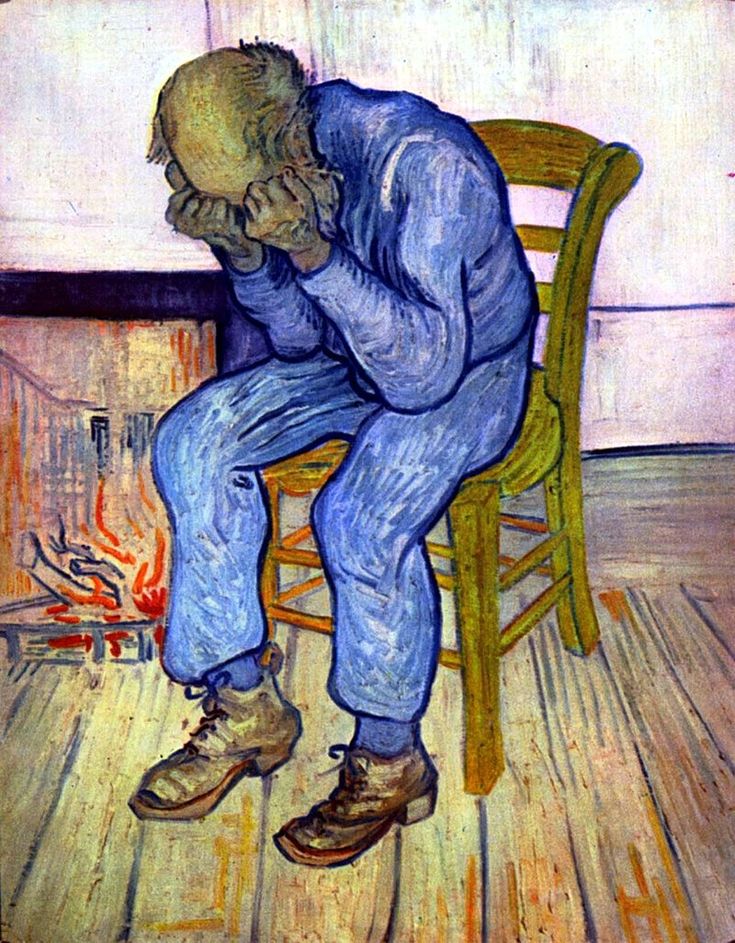
Vincent van Gogh, "Old Man in Sorrow" (On the Threshold of Eternity), 1890
Editor’s note:
There are 2200 documents on the Word Gems site, but this might be my favorite writing. If you allow yourself to accept the far-reaching implications herein, you might join me in this assessment.
Before proceeding here, you’ll want to study the scientific evidence for the afterlife which serves as foundation for the information below; advice I could offer as prelude to many of my articles; however, while Summerland, the initial "port of entry" to the afterlife, is very Earth-like, worlds beyond Summerland, even more wondrous, offer certain features which could seem fantastic to us - but only because we've not known the meaning of "interactive environment" or "thoughts are things," nor have we lived in a world where these precepts begin to take flight and soar.
|
thoughts are things
The following is from Flashes of Light from the Spirit-land, through the mediumship of Mrs. J. H. Conant, by Allen Putnam , Frances Ann Conant, 1872.
Question. You say thought is rounded into form. I can conceive of a bubble being rounded into form and then vanishing into air. Is it the same with a thought?
Answer. It certainly is. You cannot conceive of the reality of thought simply because you cannot measure it by your human senses, you cannot weigh it, you cannot materially deal with it. Now, thought is to humanity the intangible, the unreal; it is the fleeting. But to the disembodied spirit it is the real, the tangible; it is the life. Yes, thoughts are rounded into form just the same as bubbles are, as worlds are, as dew-drops are.
This concept of thought as a kind of “bubble” is found in other reports. The question is asked, if I think of my loved one over there, or speak out loud to her, can she hear me, or will she even know that I’m trying to communicate?
The answer that’s been given is that our mental efforts to communicate will issue as a kind of “bubble” or, with today’s analogy, like a computer “pop-up message.” It is said that when you send a mental note like this, it is unfailingly received by those over there. There's a very good mail-delivery system in Summerland.
We can also communicate telepathically:
Psychic-medium Juliet S. Goodenow, reported in Vanishing Night. She had read a book by the late Frederic W. H. Myers. She wondered if it were possible to contact him. “This is all that I knew concerning Mr. Myers. With pen in hand … I called with my inner voice: ‘Mr. Myers!’ The reply came instantly, as follows: I am he. It does not take long for a spirit to travel. The first faint allusion to a spirit is heard.”
My acquaintance, psychic-medium August Goforth, adds that, very often, when we feel prompted to send a message to a loved one, our desire to do so represents a “conversation that they started,” and now invite us to respond!
|
Under the “Children & Family” icon, I posted an essay presenting the case for having children in Summerland. While this blessing will address, for a great many, a major area of missed opportunity on Earth, a multitude of other calamities will also hope for resolution with the advent of the “real world.”
We’ve discussed how Summerland is more than a resort-world – nothing wrong with resort-worlds, and we’ll need plenty of “r & r” after the Earth-mission -- but other issues, most pressing, beyond that of pleasant accommodation, will likely command our attention.
Each person harbors a private definition, a special and particularized need, of happiness. While hopes and dreams, in the main, will have gone begging during the Earth-trip, they will not have been forgotten. Hardly. We learn from the great psychologists that our true desires never die.
|
But, O that I were young again, and held her in my arms!
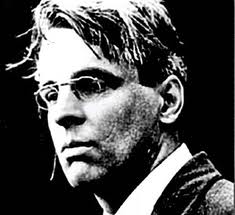
This most-fervent sorrowing of William Butler Yeats, one of great poets of the 20th century, reveals an open-wound trauma in his life. He had married late, wanting a son to perpetuate the family line, but was very unhappy with his much younger bride. The one whom he truly loved was not available; even so, we're told, he actually wrote to his true love during his honeymoon! How tragic.
special note: With great interest, I learned that Yeats had pursued evidence for the afterlife; further, he credited some of his poetic insights to sources from the astral realms.
|
Therefore, these unconsummated yearnings must be addressed. How shall these unfulfilled aspirations come to resolution?
- Personal satisfaction is necessary, vital to attain, before one can progress to higher states of being. Without this sense of greater inner wholeness, we’d be continually looking back in wistfulness to the Earth-world as “the good old days” where “the best opportunities” were possible. Without real fulfillment of cherished longings, many, in their grief over lost chances - like the Israelites in the desert wishing to be slaves again in Egypt - would get psychologically "stuck” in Summerland, unwilling and emotionally unable to evolve as souls.
Those who oversee and manage the astral realms – advanced, ancient beings, many thousands of years old -- are well aware of this potential existential hazard. As such, every effort is made to allow the citizens of Summerland to experience what their hearts need to experience, in order to eventually say, “been there, done that, got the t-shirt and video, what’s next?”
Some missed Earth-opportunities are relatively easy to remedy; for example, let’s say you always wanted to play a musical instrument. Well, you can do that in one of the many music conservatories over there – see Father Benson’s comments.
Learning new skills and information, with our then-expanded mind power, will be so much easier. In time, not too long, the Summerland music student, if one so desires, will be able to participate as a member of an orchestra to perform at concerts, which are common in the next world.
There is another class of disappointment and loss, however, which will prove to be more intractable. Certain "holes in the heart" are much more personal in nature and specific to a particular place, time of life, person or persons. How does one find psychological healing concerning these?
|
please help me mend my broken heart and let me live again...

How Can You Mend A Broken Heart
I can think of younger days
When living for my life
Was everything a man could want to do.
I could never see tomorrow,
I was never told about the sorrow.
And how can you mend a broken heart?
How can you stop the rain from falling down?
How can you stop the sun from shining?
What makes the world go round?
How can you mend this broken man?
How can a loser ever win?
Please help me mend my broken heart
And let me live again.
Editor's note: A cry splits the night - the long dark night of the soul:
How will I ever be made whole from the devastating losses of this world? How will my heart ever come to know peace and happiness after losing everything I had or might have had? but, worst of all, after losing opportunity for tomorrow.
Diana's lamenting song demands, "How can you stop the rain from falling down, how can you stop the sun from shining?" These are impossible questions begging the answer, "You cannot do these things, because there is no solution." Likewise, as we have been terrorized to imagine and conclude, there is no solution to all that one's deepest person has yearned for in this world but failed to achieve or gain.
But how strange is reality, how utterly unexpected is the truth. Wonder of wonders, it actually is possible, in a very real way, for "second chances," for gaining what our secret heart of hearts really wanted, but had been given up as forever lost.
Let me live again!
The ancient Greeks understood that mere endless duration of existence would be of little advantage without the heart finding fulfillment concerning that for which it yearns.
Spirit Guide Margaret proclaims the same: without hope and promise of particularized love fulfilled, we will fail to find lasting happiness in heaven.
Diana's assertion, "let me live again," is no request for more time as a mortal, no cry for fabled reincarnation; no, not that, we've had enough time on this sorrowful planet - "let me live again" must be realized as per the only definition of life that's worth living.
|
This question of substantial loss, for years, would sometimes bother me. I would read the afterlife reports, especially Father Benson's, about the astral-realm beauty of the meadows and mountains, the “halls of learning” and cultural events, the colorful flowers and birds, the picturesque rivers and streams; but, I thought, what good are these, what good is a pretty landscape and a college course, without real healing, a real sense of wholeness, real resolution to one’s very personalized hopes and dreams?
I knew that I could not be the only one thus questioning; untold millions would have crossed over with similar concerns, and so I concluded that provision, some how, would have been made. My hunch proved correct; eventually, I found and was given what I needed to know.
|
life in this world was not meant to work
The next life is not a "second chance" for happiness. It's our "first chance." I say this because life here was not meant to work.
It may work, somewhat, at times, but primarily, we came here for other reasons: in broadest terms, it was to prepare us for what comes next.
And how shall we prepare ourselves? The most pressing goal during the Earth-journey is that of individualizing ourselves; to craft and sculpt a well-defined “self”; to become a person in our own right. Success here allows us to begin in the next world.
As we make our way through mortal life, fashioning the inner person as we go, much of our experience will be sorrowful. We live in a world characterized by loss. And we will grieve, sometimes greatly, the loss of much that is dear to us. We will miss out on longed-for aspirations, we will be kept from our heart’s desires, we will lose, or be denied, those we love most. All these calamities serve to more sharply define the inner self.
None of this is pleasant, but the good news is that it’s temporary. We solace ourselves to know that we are preparing for what comes next. This is what’s important - because the “real” world is not temporary, but our unending permanent home.
This writing offers a glimpse concerning how lost opportunities might finally be realized.
|
six separate afterlife-information sources offer the same answer - I call it the “holodeck world”
Editor's note: I use the term "holodeck world" to emphasize one main point, that, we can experience anything we need to experience. Picard's "holodeck," however, existing as a hologram, a temporary construct, essentially, was quite insubstantial. But the "holodeck worlds" of which I speak are not gossamer-like but solid and real, and "more real," than the Earth-world; "more real" in the sense that the good things therein will exist exactly as we want them to exist, for as long as we want them to exist - unlike the Earth-experience which suffers the fate of "all good things," if gained at all or to any degree, "must pass away."
the afterlife will be more real, more physical, not less
Victor Zammit: “We sometimes hear people claim that they know, without a doubt, that in the afterlife you don't have a body. They feel sure that you don't eat or drink, and you float around as a kind of blissful disembodied awareness. [However] people will find themselves in a world that is very physical and similar to life here. This is [why] we sometimes hear that there are people who don't realise that they have died because everything is so solid and earth-like…
Editor's note: See the work of Dr. Wickland who spoke to wayward discarnates via the trance-mediumship of his wife. These earthbound spirits, only with much debate, could be convinced that they were so-called dead.
Victor Zammit: “Out-of-body explorers are unanimous about the fact that the lower levels of the astral world are solid and earth-like. Jurgen Ziewe has been having out-of-body experiences for hours at a time in full waking consciousness for over forty-five years. He explains that we need to get used to the fact that our afterlife will be more real not less real, more physical not less physical.”
The Margaret Hamilton afterlife scripts, 1931-1933: “This sounds absurd to you but nevertheless it is true. The spirit world is so material to their senses that they [many on the other side] cannot realise the existence of spirit at all, much less that they themselves are spirit.”
Editor's note: What does it mean “more physical”? “Spirit” is a form of matter, but more rarified, vibrating at a higher rate. The “spirit” world is as solid as the Earth-world. See more on the “soul and spirit” page.
six reports agree
Allow me to outline the testimony of six afterlife reporters who provide a beginning answer to the above questions concerning deepest wishes fulfilled:
(1) Jurgen Ziewe, a 45-year veteran out-of-body traveler: "recreating a childhood experience to the finest detail resulting in complete happiness"
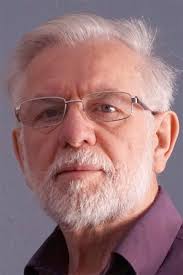
Author Jurgen Ziewe, known as “Multi-Dimensional Man,” is a commercial artist who has investigated the afterlife for decades.

See his website: multidimensionalman.com
From his studies and personal out-of-body experiences, Jurgen offers the following story on his website. While the account is fictional, it represents a summary of what he's learned about certain sectors of the next world:
Here is a fictional story of a young man who grew up, died young, and eventually arrived on the super-dimensional level:
The happiest time of his life had been as a young boy when he grew up on a small farm with an assortment of farm animals within a happy and loving family. On the super-dimensional [level], he recreates his childhood experience down to the finest detail which is conjured up from the matrix of his former life. He now lives in complete happiness. He can even speak to the animals and they can speak to him. He plays with his friends and helps his father in the fields. Everything is as he remembers and better, but with the additional quality that everything he touches gives him total happiness. The people he is with are authentic incarnations from their soul essences such as his parents, who will in turn benefit from his devotion. Every detail of his young life is there, including the mud puddles he plays in, down to the smell of the fresh manure, which he remembers and associates with his childhood idyll. Everything has a pure and beautiful essence. Nothing is there that will disturb the idyllic world until it is his time to move on.
Notice how in this holodeck-world the young man lives as a boy again. His childhood Earth-experiences are reproduced in “the finest detail.” He jumps over the same mud-puddles, plays with the same kids, works in the same crop-fields, recognizes the same familiar scent of barnyard manure, and is superintended by authentic representations of his parents who work on the old farm.
Editor’s note: As a child I had the opportunity with a neighbor friend to ride our ponies in a very large pasture; no one around, almost as far as the eye could see. I was too young to understand how privileged we were, unaware of the dire straits besetting most of the world. Those carefree, unbothered, halcyon days – though I was too unformed to know it at the time – would constitute some of the happiest moments of my entire life (to be realized only much later in old age). But the sublimity of that early sense of suffused well-being might be recaptured, reenacted, regained – all with exceedingly great and glorious detail -- in a Summerland “pocket dimension,” coming your way soon.

(2) C.W. Leadbeater, The Devachanic Plane: "creating one's own world of highest bliss, constructed from memories and desires"
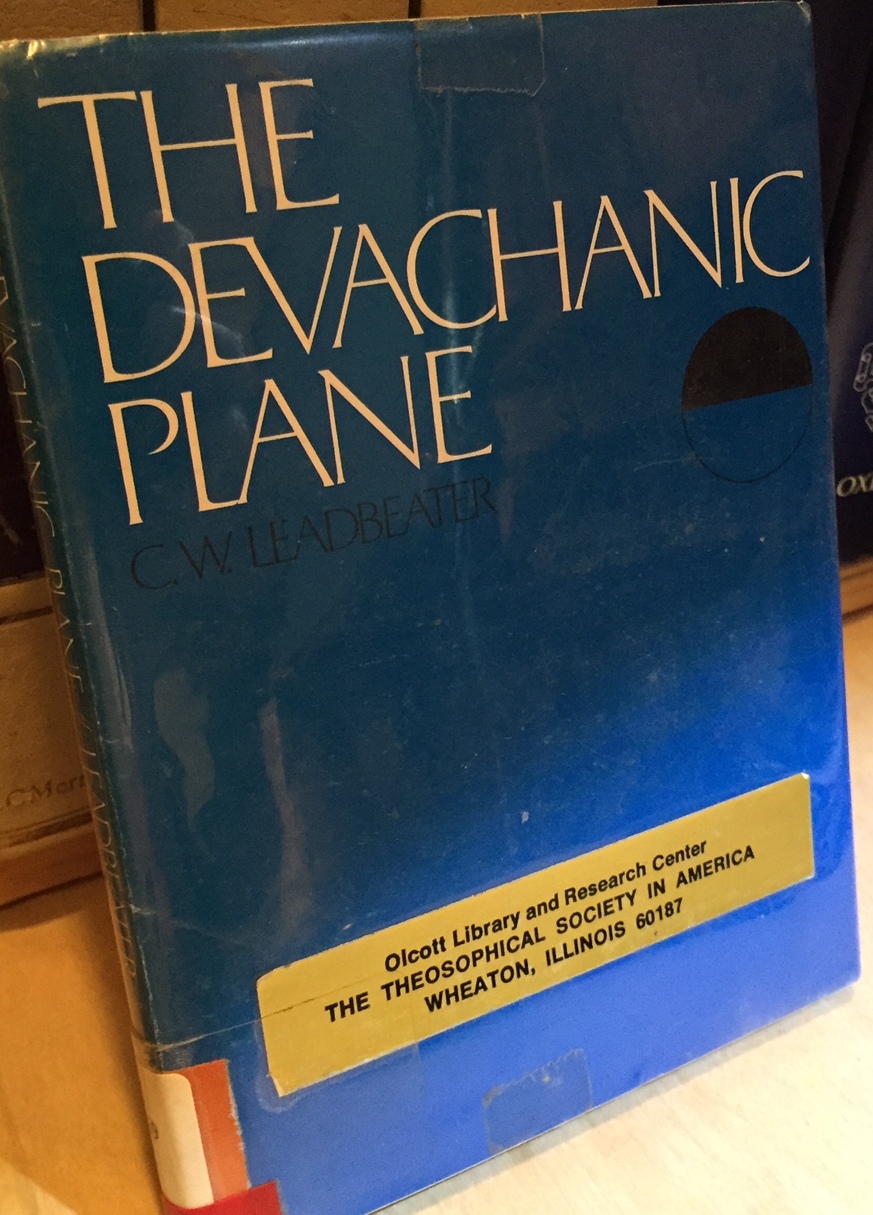
The “Devachanic Plane” is a term the Theosophists invented for one of the “port-of-entry” worlds to the afterlife, a little more advanced than Summerland. This is what Jurgen calls "the super-dimensional" level.
"Devachan" is a compound word from the Sanskrit 'deva', gods, and the Tibetan word 'chan', land, i.e. the "dwelling of the gods." Other afterlife reporters do not use the term “Devachan” but instead might say, the "fourth level.” Summerland is considered to be the “third level.”
C.W. Leadbeater (1854-1934), via psychic abilities, reports that he located the "Devachan" and testifies to its characteristics, which are very similar to that affirmed by Jurgen. The following is from Leadbeater's book:
[Devachan] is a world in which every being [is] … enjoying the highest spiritual bliss of which he is capable [as Devachan is constructed from one's own memories and desires] – a world whose power of response to his aspirations is limited only by his capacity to aspire…
In Devachan anyone who wishes … may actually live in a [private] world of his own without possibility of interruption and with the additional advantage of seeing all his ideas and their consequences fully worked out, passing in a sort of panorama before his eyes.
[Just as a child on Earth plays] “make believe,” so it is [with the one in Devachan] who surrounds himself … with an illusory world created by his own thoughts. In point of fact, the Devachan [world] of each person is exactly suited to him; [this is so because one's own desires serve as basis for the construction of this world] …
It may be thought that there is a difference in the case of our friends – that, [on Earth] we have them really with us, but in Devachan what we have is only an image of them which we ourselves make. This … is true only of the lowest planes, and if the friend is an entirely undeveloped person … [but] as a man becomes more real [more conscious to] himself, his Devachan [world also] becomes more real… as man evolves, the illusions which clung round his spiritual childhood drop away, and he draws ever nearer to the reality which lies behind them.
[The Devachan world] is … the only imaginable one which could fulfill its [objective] of making [the possessor of that world] happy to the fullest extent of his capacity for happiness. If the joy of heaven were of one particular type only, as it is according to orthodox Christian theory, there must always be some who would weary of it [but instead, there is available] that quality of [personalized] joy which is best [and exactly] suited to his idiosyncrasies…
[Here's an example of a Devachan world: A child] died at the age of seven and [had been taught with religious stories] … and the best of all [happiness for him, as he defined happiness, was that] he loved to think of himself as playing with the infant Jesus and helping him to make those clay sparrows which the power of the child-Christ is fabled to have brought to life and caused to fly.
The Devachan world, a holodeck-world, is a world wherein one's memories and desires are brought to life. It becomes "more real," more authentic, as the inhabitant becomes more real to him or herself, in terms of growing in consciousness.
(3) W.F. (Rick) Rickard, direct-voice medium, facilitating messages from an ancient afterlife entity: "lovers to create, via thought, their own private world, according to their own liking"
On the "Direct-Voice Medium" page I present the work not only of Randall and French (below), but that of Rick Rickards. During the 1950s and '60s, Rick was part of the Norman Hunt Circle in England. See the referenced page for more information.
Rick "brought through" many reporters from the other side, but, I would say, by far, the most notable and wise was Spirit-Guide "Abu" (which means "father" in the sense of "teacher"; a similar term is used by the apostle Paul in Galatians), a former Egyptian priest of 3500 years ago.
James Webster, afterlife researcher of 60 years and retired medical professional, is currently the custodian of the Rickard tapes. James graciously sent me CDs of some of the Abu's tape-recorded messages. I count these among the best of a few hundred sources reviewed in 25+ years.
In CD #33, Abu speaks to the circle-members as he answers their questions. One person wanted to know how hard it might be to adjust to our new lives in Summerland, and would we at times be "frustrated"? Abu said that the term "frustrated," while there will be a certain "learning curve," might be inappropriate, a little negative, as we will finally be living in the "real world," our true home. There will be no frustration once we return to our natural environment, he said.
Offering an example of his meaning, Abu said that our present physical bodies of dense matter do not truly represent our native and natural mode of living, and that when we cast off the mortal shell at transition, with the far lighter inner-body then taking charge, we will feel much more "at home" and at ease with this, our "normal" attire.
lovers to create, by their own thoughts, a private world for themselves
And then Abu made a comment that strikes at the heart of our discussion here. Regarding feeling "at home" and not "frustrated," Abu said that lovers, by their own thoughts and intentions, will be able to create a world reflecting their own specifications, their own liking, wherein the couple would be able to experience romantic love according to their own terms and definitions - and that this personal control over their environment would assure them that a sense of complete happiness, peace, and security will be attainable.
I might add that Abu no longer lives in Summerland, but in a more advanced world, "the fourth level," where, as we'll discuss in more detail, the principle of "thoughts are things" takes to itself new life and expanded powers.
(4) Edward Randall and Emily French, direct-voice medium: "the spheres of love ... countless in number ... where lovers cling to one another"

Edward Randall was a prominent attorney in Buffalo, NY in the early 1900s. He became interested in the scientific evidence for the afterlife and, for about 20 years, regularly met with the aged and frail Emily French, a gifted direct-voice medium. He and others thoroughly investigated the work of Mrs. French with a view toward affirming its veracity.
During their time together, thousands of messages from the afterlife were received, the content of which was transcribed by a stenographer. Many of the messages were from scientists and intellectuals on the other side who spoke of things of which Mrs. French, or many, would have no knowledge.
See more information about Randall and French here.

"The French Revelation" is one of my favorite afterlife-testimony sources. I like the many sophisticated discussions as persons on the other side debate the existence of God, just as we do here in our world.
But, for our purpose at hand, the following message fits in very closely and very well with what we've already seen:
"The spheres [worlds]! No tongue can describe them. There are thousands... millions... countless in number... all rounded into complete worlds, and all the habitations of those who cherish the special idea which rules the sphere... There are spheres of every mental light, thought, and knowledge; spheres of special grades of intellect and wisdom. In all and each [person] is a special need of happiness... There are spheres of [romantic] love, where tender natures cling to one another until they are drawn by higher, broader aspirations to [wider] planes of thought..."
Editor’s note: “wider planes of thought” is not meant to imply that authentic romantic love is some narrow pastime, to be dispensed with as soon as we attain maturity. Far from it, as the Spirit Guides refer to true love as catalyst to evolvement, the very life and breath of heaven. However, “wider” here stands in contrast to a coming time of focused attention to love’s requirements. During the Earth-mission, most will have so yearned for love that, when the true mate finally arrives, much time will be expended experiencing love simply to “get back to zero,” to help oneself feel normal again; if ever we did without love. We’re reminded of the words of Heloise, so starved for love that she couldn’t think or see straight:
a mind preoccupied with anxieties cannot genuinely devote itself to God... no power to pray...
|
Editor's note:
The spheres of romantic love, the “clinging worlds,” are where lovers enjoy the eroticism they missed out on during the Earth mission.
The Kama Sutra offers good advice concerning this future benefit:
If men and women act according to each other's liking, their love for each other will not be lessened, even in one hundred years. Kama Sutra
READ MORE
|
(5) Emanuel Swedenborg and the interactive environment: "We find in the spiritual world [that the very landscape and surroundings] will reflect the feelings and thoughts of the people who are there."
|
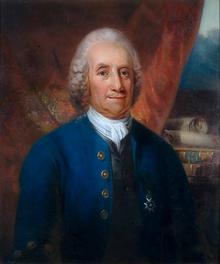
Emanuel Swedenborg
(1688 - 1772)
Editor's note: In the "Afterlife" section, see an article devoted to Swedenborg.
He was a Swedish philosopher, politician, musician, theologian, inventor, engineer, mathematician, linguist, and scientist. In 1741, at the age of fifty-three, he entered into a spiritual phase in which he eventually began to experience dreams and visions of the afterlife.
With an estimated IQ of 200, Swedenborg spoke nine languages, wrote works covering seventeen sciences, excelled in seven crafts, a member of the Swedish parliament, and the inventor of a glider, a submarine, and an ear trumpet for the deaf.
Swedenborg was a physicist whose insights anticipated Einstein by two hundred years; an astronomer who suggested the nebular theory of the formation of the planets; a mining engineer who produced the first Swedish texts on algebra and calculus; a physiologist who discovered the function of several areas of the brain and the ductless glands, and the designer of the world's largest dry-dock.
His earthly accomplishments would have filled a dozen lifetimes. But they were not enough for Swedenborg who pressed his search for the human soul beyond material intellect into the spiritual world.
Swedenborg opened himself to vistas that only spiritual senses can detect, and became a messenger bearing news of the world beyond and within. He wrote 35 volumes of what he observed in the spiritual world over a period of 27 years.
Swedenborg Foundation
There is a group of dedicated individuals who seek to promote Swedenborg's philosophy and psychic visions. You might want to view their youtube videos and website, swedenborg.com.
I’ve reviewed a few of their videos and have found them to be quite good. One of these focuses on Swedenborg’s writings dealing with the phenomenon of thoughts and feelings affecting surroundings in Summerland.
interactive environment

In a program entitled “Will Life Be Different When You Die?”, Curtis Childs of the Swedenborg Foundation takes us to the writings of Swedenborg, the mystic’s memoirs of his out-of-body travels to Summerland. We’re offered a view of how the major aspects of life present themselves in the next world - not necessarily on the “lower levels” of Summerland, which are very Earth-like, but in levels just a little more advanced. That's where the real fun begins.
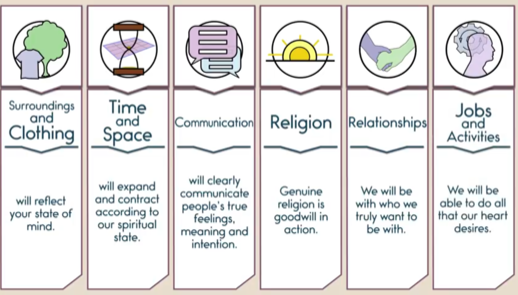
As Curtis leads the discussion concerning these topics, we quickly discern that all of them are "interactive," that is, each one presents itself as a perfect expression of one's truest self and purest intentions, all in service of highest and best happiness.
Clothing: In the "Summerland 1-Minute" article we noted that we wear what we want over there; however, there's an "upgraded software" version of this. As we mature, our clothing will simply manifest, simply be there, as perfect representations of our inner essence and interests.
Work, Activities: We won't need a guidance counselor later on to determine what we should do. Our very natures, one's inner life-force, will call out to express what we're best at, what we've always wanted to do.
Time, Space: Among the more aware, time and space bend to one's needs (this is reminiscent of Kant's and Einstein's view, with time and space expanding and contracting). If we need to be somewhere, space will shrink for us; if we need more time to indulge a favorite activity, there will always be just the right amount of time to match our intentions.
|
channeled information from Summerland, as reported in Excursions to the Spirit World by Frederick C. Sculthorp: He had learned how to astral travel and had visited his departed wife on the other side:
"The higher speed of thought, and life on the bright planes, compared with our set ideas of time, is hard to understand, but it is relative and only noticeable when comparisons are made. In the summer 1957, I spent a week's holiday with my wife in spirit - in one night!
"I had been projected and joined my wife in a place that I can only describe as a sylvan fairyland of trees and water. We were on the grassy banks of a placid stream overshadowed by trees. Shadows are hardly possible on this bright plane, but the beauty of light and shade was enhanced by the shafts of light from the brilliance overhead which emphasized the fresh greenness of everything."
|
Relationships: We are with the ones we love and want to be with. Our beings cry out for them, and, with this cry, the friend or beloved is summoned and manifests. Space shrinks - and they are there, with you. For those with whom there is no affinity, there would be no "call", and so an insurmountable distance will separate.
In each of these areas, and ones not mentioned, our intentions, thoughts - private definitions of happiness - rule. It's an interactive environment wherein all desired good things become reality.
Special note on “Communication”: In this world, we are often misunderstand. True intentions in communication frequently fall by the wayside, and there is no meeting-of-the-minds. These misreckonings keep people apart with imagined grievances. But this is not possible in that coming world of interactive environment where truest intentions could never be misunderstood as they literally shape and craft reality.
I am reminded of the Spirit Guides’ statements concerning destined lovers, that it is the Guides’ duty and work to bring them together, at the right time. But it occurs to me, too, that the Guides can also, just as easily, arrange things to keep true lovers apart for a season. They do this because sometimes it’s best for them to go their own way for a time, and learn certain lessons in their aloneness and suffering.
In our world, cause for separation, at times strategically led by the Guides, can take the form of miscommunication, unintended meaning, and spectacular misjudgment. In the article, “What We Stay Alive For,” I stated that these kinds of interpersonal illusions can be like a farcical dream wherein nothing can be made to work; they can’t get it right to make themselves understood, no matter what they say or do. I think this is by design; nobody can be that unlucky, over a long period of time. However, eventually, the Guides will deem the two as sufficiently evolved, less ego-driven, and to have earned the right to finally be together. One thing for sure, they won't forget their difficult classroom.
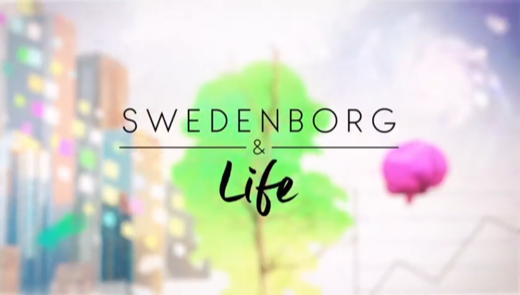
|
(6) Timothy Gray from the afterlife: “[It's like] a very large and entertaining play… These other worlds [are] no less real than reality; nevertheless, they are not reality, but thoughts about reality… Since the illusion is built directly upon a foundation of reality it has an apparent feeling of reality and will respond to its manifestor’s mind as directed.”
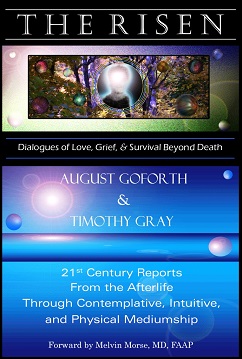
In the above examples, we learned of worlds of "make believe," and here is a corroborating account.
My acquaintance August Goforth is a New York licensed psychotherapist and also an accomplished psychic-medium. With his friend Timothy Gray on the other side, he has written a number of books offering information about the afterlife.
In chapter 25 of “The Risen,” Tim speaks of worlds of illusion that one might enter to fulfill particular desires. Though illusionary, these worlds are as real, feel as real, as the Earth world. Tim devotes chapter 25 to dispelling the myth of reincarnation and how confused spirits desire to perpetuate its influence.
a grand game of 'let's pretend'
Nevertheless, says Tim, if one is adamant upon experiencing reincarnation, while the real McCoy will not be available, one will be allowed to simulate reincarnation in special illusionary worlds created for this purpose. In fact, says Tim, one might simulate almost anything that the mind can conjure or conceive. For example, you could simulate a scene from "Sword In The Stone."

Tim says, if one wanted to see, just for fun, what it would be like to live as an animal, you could do that, in simulation, in one of these make-believe worlds. It's a grand game of "let's pretend."
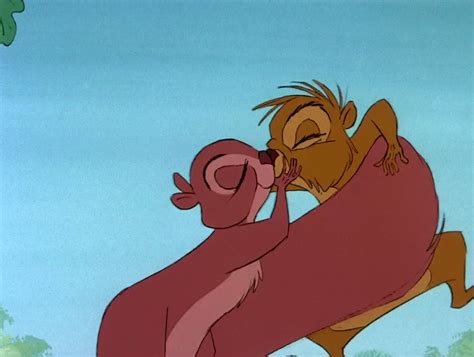
Here's some of the dialogue between Tim and August from chapter 25:
Tim: “Creator Source will not interfere with what one desires, for Its greatest pleasure is to give us whatever we want, not to withhold it… All decisions are ours alone to make. In my experience it seems clear that our Source makes no judgments or decisions…
“It will be up to only the individual to choose what to do... This includes doing it again, like a child going up and down the slide over and over, or deciding to try something new on the playground…
August: “Tim, it really does sound as if it’s all an immense and dramatic soap opera, or some kind of game.”
Tim: “So why can’t it be? If you want to step into the part and play it to the hilt, who says you can’t? If you want to make up a game about reincarnation and make it seem so real that it appears real, why not? … there’s no reason why a person can’t manifest yet another experience on another version of Earth that is completely like the one they left. Mind is that powerful. Everyone can manifest their very own Earth to return to - exactly like the one they left… ‘In my house are many mansions,” as the saying goes... These mansions are also the unlimited possibilities in Mind… These other worlds may be thought of as no less real than reality. Nevertheless, they are not reality, but thoughts about reality.”
|
Editor's note:
‘manifest their very own Earth’
Many sci-fi movies these days feature the “multiverse” with an infinite number of Earths. There is no such thing as a multiverse, as this was conjured, without evidence, to support the idea that matter, not consciousness, is fundamental in the cosmos.
See the “quantum” and “evolution” pages for more discussion.
Ironically, however, there are infinite worlds and, if one desires, infinite Earths, to be accessed over there. But these are not part of a fancied “multiverse.”
|
August: “Following your lead, Tim, I could answer that by saying there should be something [for us in an illusionary world] only if one wants it, right?”
Tim: “Go to the head of the class.”
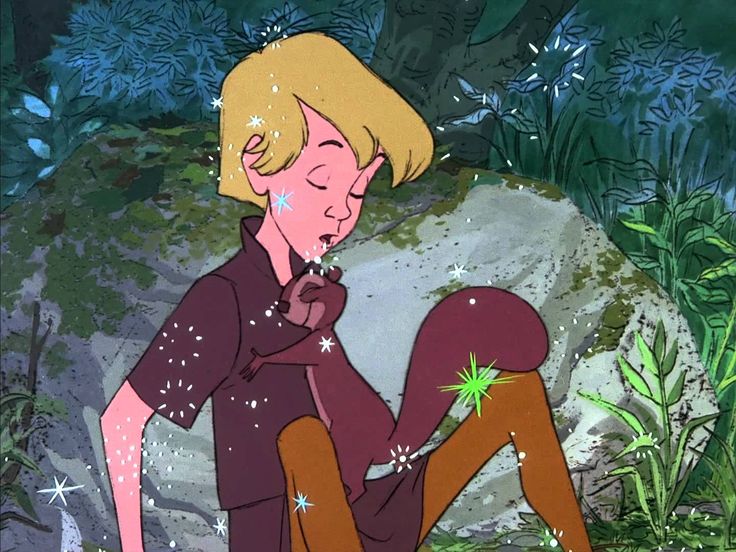
August: “So then it follows that because Original Creator Source is unlimited, so are we [because we are connected to and derive from Source], and there must be unlimited room for all potential worlds, universes, and experiences to interpenetrate, and for all time -- or not-time, as the case may be.”
Tim: “By Jove, you’ve got it.”
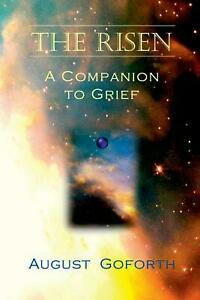
READ MORE "Risen" quotations near the bottom of the "reincarnation" page.
Notice how all six quoted sources speak of a world wherein one's particular and private definitions of happiness are honored and pursued; moreover, are led and crafted by the power of truest feelings and intentions.
the spheres of romantic love
We gather, from the above testimonies, that the holodeck-worlds of the "super-dimensions" beyond Summerland might bring to life, enflesh, and serve to enact, or re-enact, any lost opportunity of one's Earth-life.
For some, as we've seen, this could mean reliving peaceful and happy childhood days on a farm; or, it could mean interacting with a "baby Jesus" with whom one might bring clay sparrows to life.
- Editor's note: This "baby Jesus" was not a real person, did not have a soul, but was created in a holodeck-world to help a child of seven explore and come to terms with a religiously-inclined sense of happiness.
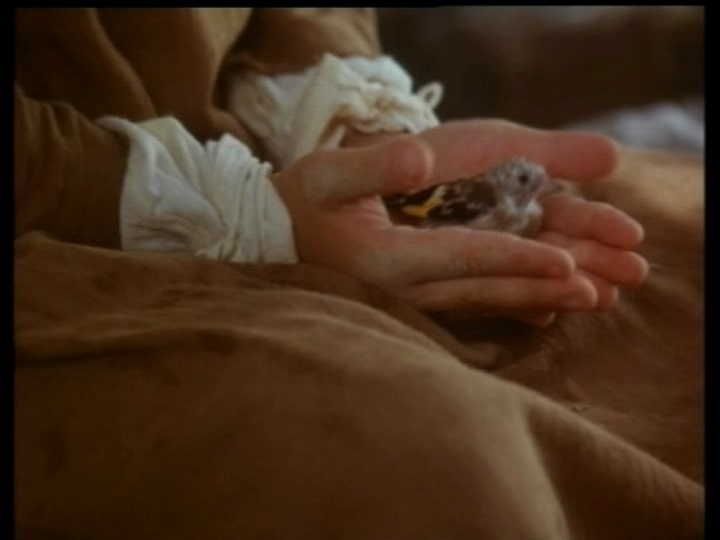
These activities are fine for those thus requiring, but, for the majority, the open-wound perception of Earth-loss will center on something else.
In the article on "repression," we reviewed comments by the great psychologists regarding hidden desires which, if unrequited, will never leave one's spirit. We speak, of course, of romantic love.
For untold millions who cross over, devastating loss in the area of thwarted romance will dominate the psyche. And this is why we learn of specific and dedicated holodeck-worlds called "spheres of love" wherein lovers simply "cling to one another," for as long as they need or want to, as they seek for emotional healing.
|
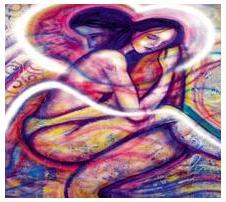
Rod Stewart, Sometimes When We Touch
I want to hold you 'till the fear in me subsides
Cyndi Lauper, Water's Edge
Oh, I wish you could wrap yourself around me
I am gripped by a loneliness
Oh, I wish you could wrap yourself around me
I'd be released in your tenderness
I'd be released in your tenderness
|
|
the future life "would assuredly not be worth living" without one's dearly beloved
Editor's note: Many afterlife testimonies insist that Soul-Twins' marital love constitutes the ultimate satisfaction in the Spirit World. The channeled works of Dresser, Duffey, Silver Birch, Myers, Rickard, Swedenborg, and others, make this plain. But I was surprised to find a similar statement in the writings of William Stainton Moses, one of the great mediums of the 1800s. There is much wisdom in his books about natural law, how things truly work in the next life. Amidst this discussion, I was not expecting a reference to romantic love; yet, near the very end of his second book, he asserts:
"In demonstrating man’s absolute accountability for his acts, and his formative power in moulding his character and preparing for himself his place in the life to come, it enunciates a principle which is inferior to none in its binding and corrective and essentially religious power. And in preaching the gospel of hope of union, and communion now [with those on the other side], and of reunion hereafter, with those so dearly loved that, without them, [a future] life, whatever other boons it had to offer, would assuredly be not worth living, it lightens the weary load of the present, and gilds the prospect of the future."
Editor's note: We mark the phrase, "not worth living." Without the love of those dearest to us, including a particular one most dear -- "assuredly" says Moses -- Summerland, despite its thousands of other benefits, would hold no appeal for us. See the section in "The Wedding Song" concerning "what we stay alive for."
|
Picard in the "Nexus"
In the Star Trek movie Generations, Picard finds himself in a Summerland-like world where long-cherished desires are fulfilled.
His secret heart had always harbored a wish for a wife and family, especially to share tender love at Christmas time with little children; this definition of happiness, for him, came to life in the "Nexus," a holodeck-world.
In his case, however, a glistening bauble suddenly brought him to an uncomfortable awareness: "These children aren't real! Nothing here is real! Nothing here matters!"
Picard's perfect wife and children, mere soulless humanoids, were as unreal as the baby Jesus playing with the seven-year-old. But, unreality in the Devachan, we learn from Leadbeater, becomes a function of one's level of consciousness. There is a way to make it all very real.
quantum-based holodeck-worlds, wherein thoughts rule, create, and direct reality
Editor's note: see pages on "quantum mechanics" and the "double-slit experiment."
In Father Benson's Summerland, the principle of "thoughts are things" begins to gather momentum. He explains how people there can transport themselves over great distances merely by thought-power; boats are propelled by thought, and buildings are brought into solidity with the help of focused intention.
But in the worlds beyond Summerland, the power of thought shifts into high gear; now one is able to create whole worlds, "in finest detail," by applying concentrated thought. These worlds, "countless in number," manifest as a result of one's deepest wishes and desires.
|
I ran to him, held him tightly in my arms, and would not let him go

oh, the joy
"I will rise now in the night and seek the one whom my soul loves. I sought him but found him not. Breathlessly, I implored the watchman of the street, 'Oh, have you seen him, have you seen the one whom my soul loves?' But I found him not. I continued searching, desperately searching in the night; then, finally - oh, the joy! - my eyes met the one whom my soul loves. I ran to him, held him tightly in my arms, and would not let him go." Song of Solomon
|
Editor’s note: This vignette of lost love, written thousands of years ago, becomes universal metaphor of midnight confession and 3 AM introspection, of endless searching in the long dark night, for an absent someone.
|

|
Just as Jurgen's young man was able to recreate his early farm-boy days, and as the seven year-old child was able to conjure a super-friend to make clay sparrows fly, so too lovers will be able to craft and design a world, or any number of them, to explore their specific, very personal, missed or bungled opportunities of Earth-days; proximate cause to their having lost each other.
|
you don't know anything about me...
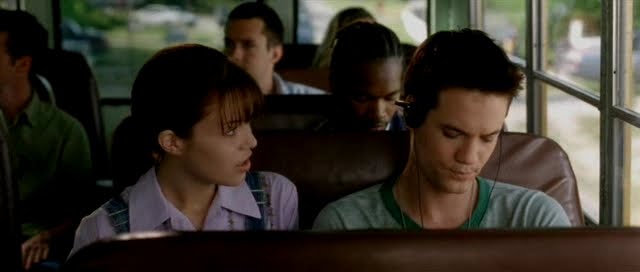
Jamie Sullivan and Landon Carter
"Please don't pretend that you know me."
"I know everything about you. I've been in school with you since first grade - (in condescending, impatient tone) you're Jamie Sullivan, you wear the same green sweater, you always sit in the front row, and when you walk you look at your feet."
"You don't know anything about me."
Eckhart Tolle: Regarding "John and Mary" meeting each other: "You're not meeting anybody at all! - you're meeting your own thoughts. You think you're meeting people, entering into relationships with them, but you're only having a relationship with your own [egocentric] mind. And then you marry her and she has the same problem. A little later they can't stand each other anymore. Two minds meeting that [do not really meet at all; they never met the real individual, the true self, only their egoic desires superimposed upon that person]."
|
What does it mean for lovers to explore missed opportunities? It can mean anything they want it to mean; the possibilities are infinite in scope, and will play out differently for each couple, in terms of mitigating sorrow from the past.
They will be able to relive and recreate actual situations from long ago "in the finest detail," to experience "what might have" or "should have" been.
How long might they stay in a particular holodeck-world, exploring a particular event or issue? It could range from a brief afternoon tour to spending years and decades there. A couple could actually decide to simulate growing up together. Unlike fabled reincarnation, they would retain their adult minds but outwardly represent themselves as children.
- The Astral Plane: Its Scenery, Inhabitants, and Phenomena (1900), by C.W. Leadbeater: “The astral region which I am to attempt to describe … has often been called the realm of illusion, not that it is itself any more illusory than the physical world [Earth], but because of the extreme unreliability of the impressions brought back from it by the untrained seer. This is to be accounted for mainly by … remarkable characteristics of the astral world; first, that many of its inhabitants have a marvelous power of changing their forms with Protean rapidity, and also of casting practically unlimited glamour over those with whom they choose to sport…” [Proteus, a Greek god, son of Poseidon, called the "Old Man of the Sea" by Homer, said to have the power of "elusive sea change", reflecting the rapid and constantly changing nature of water.] Editor's note: This recreational ability to alter one's outward appearance is spoken of by Tim (above) who informs us that one will have the option of seeing what it's like, just for fun, to live as various animal forms.
|
[in simulation] you may relive part of [your earth]-life, or the whole of it, if you shall wish
Spirit-Guide Abu: “When you shall shed the limitations of the Earth-plane, you may relive [in simulation] part of that life, or the whole of it, if you shall wish – it is not likely that you will wish to relive it in its entirety, as there will be better things to do, but it is conceivable that you may wish to go back over a part of the life which you remember.”
happy glade
Editor's note: The Abu-tapes occasionally feature testimony from a once-fallen WWI soldier, Alfred. "Alf," as he calls himself, is a student of Teacher Abu, has a good sense of humor, and likes to laugh about his ill-spent youthful days before the War when much of his time was spent drifting about and drinking beer. It took him a while to adjust to Summerland society and to live responsibly.
However, Alf's country property in Summerland offers something for our discussion here. There's a row of bushes near his house, and, he reports, if he makes his way through the bushes, he suddenly finds himself in -- I'll call it -- a secret garden. It's a private setting with stream, trees, flowers, and colorful birds. Alf calls it his "happy glade." This hide-away is more than secluded in that it doesn't exist for anyone else. He could, he says, take friends there if he chose to, but his "happy glade" is off the grid relative to Summerland proper. It's just for him. It's "falling down the rabbit-hole" and an entrance to a personalized "holodeck world" - for him to enjoy, develop, and experiment with. To do what exactly? That's up to him. He could simulate almost anything.
Editor’s note:
pocket dimension
In “The Flash” tv series, season four, episode “Subject 9,” the concept of the “pocket dimension” was introduced. Described as a “separate fold in reality”, it's accessed by one person.
When I saw this I thought of Alfred’s private “happy glade.” Come to think of it, all “holodeck worlds” might be thought of as pocket dimensions. They’re just for you, and for a special other, whom you'd like to invite.

"Pocket Dimension" by deviantart.com
|
lovers "clinging" to one another
In a holodeck-world of "the spheres of love," doubtless, there is much literal clinging for lovers. But I think this phrase of "clinging" is a euphemism signifying much more.
|
the Genesis story uses the word "clinging" and the Emily French testimony speaks of "cling to one another"; this latter might poetically serve as fulfillment of the ancient biblical account
Genesis speaks of Twins leaving father and mother, "clinging" to one another in the process of becoming One Person. I believe it to be significant that the Wedding Song massages this verse and substitutes "traveling on" for "clinging." I think I know why.
"Clinging" (the Hebrew in Genesis literally indicates a "gluing") refers to that dualistic means by which true lovers, in sweet opposite-sameness, awaken their souls, find spiritual integration - famously called becoming One Person. But when all this is recast as "traveling on," I think we are meant to understand that all activities of life, here and hereafter, will serve to effect sacred romantic union.
Stated another way:
"Clinging" obviously includes erotic nexus; but, to redefine this romantic process as "traveling on" suggests that all activities Twins share will take on a new delightful form. Simply being with her, just living life together, doing all things together, mundane and grand, will assume a quasi-erotic and pleasurable nature.
And I think this is why it is often stated in the afterlife reports that the very essence of heaven's joy will be that of sharing all of life there with a true mate.
|
Picard experiences 40 years in 15 minutes
We know from Einstein's Special Theory Of Relativity that time does not flow equally in all frames of reference. Here's how "spending years" in the "spheres of love" could work in a practical sense. Picard instructs us once again.
In the STNG episode, "The Inner Light," the Captain is taken to a strange planet and cannot get back the Enterprise. Stranded, he eventually marries, has children, and finally grows to be a very old man.
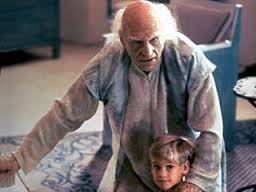
Suddenly, after decades, he is thrust back onto his starship where, according to the ship's clock, he'd been gone for only 15 minutes! - whereas his personal sense of time felt it to be 40 years!
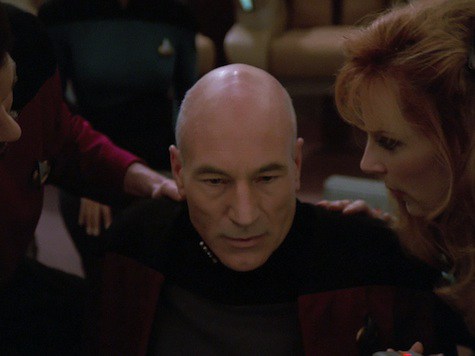
This temporal anomaly is something entirely possible. Lovers could create for themselves a similar adventure. Time flows as a function of gravity, mass, and motion, and these can be manipulated to create whatever timescape is desired. Here's the upshot.
Let's say you and your mate want to relive some childhood years, or maybe even decades, in a holodeck world. You can do that - it's theoretically possible - and this, without disrupting your "normal life" in Summerland, if that's where you two have decided to put down roots. Later, you can pop back to your Summerland life where the "clocks" will say you've been gone only some minutes!
All these things are possible. The question is, what do you want and need to do? - and with whom?
Another thing, let's say in our hypothetical situation of recreating childhood years, as we learned from Jurgen's testimony, the others in your newly-created world - possibly, parents, close relatives, friends - can be authentic soul-expressions of these people; in other words, they will be real people not androids, the same people you knew way back in your Earth days. Apparently, it is possible on the higher levels to effectively divide one's soul-energies allowing oneself to be in more than one place at a time, which would mean that the "normal" lives of these close relatives and friends would not be disrupted.
|
living in a private world of one’s own design, with no threat of interruption or loss, seeing all ideas and consequences fully worked out
In the "Devachan" report (above), the psychic Leadbeater states that we will enjoy opportunity to explore "what if" scenarios, the lost and bungled opportunites during our Earth mission, "fully worked out" in terms of resolution, closure, and possible outcomes.
How might this happen?
We're not told directly right now, but I see one road forward. STNG episode #54, "Booby Trap" (1989), helps us here.
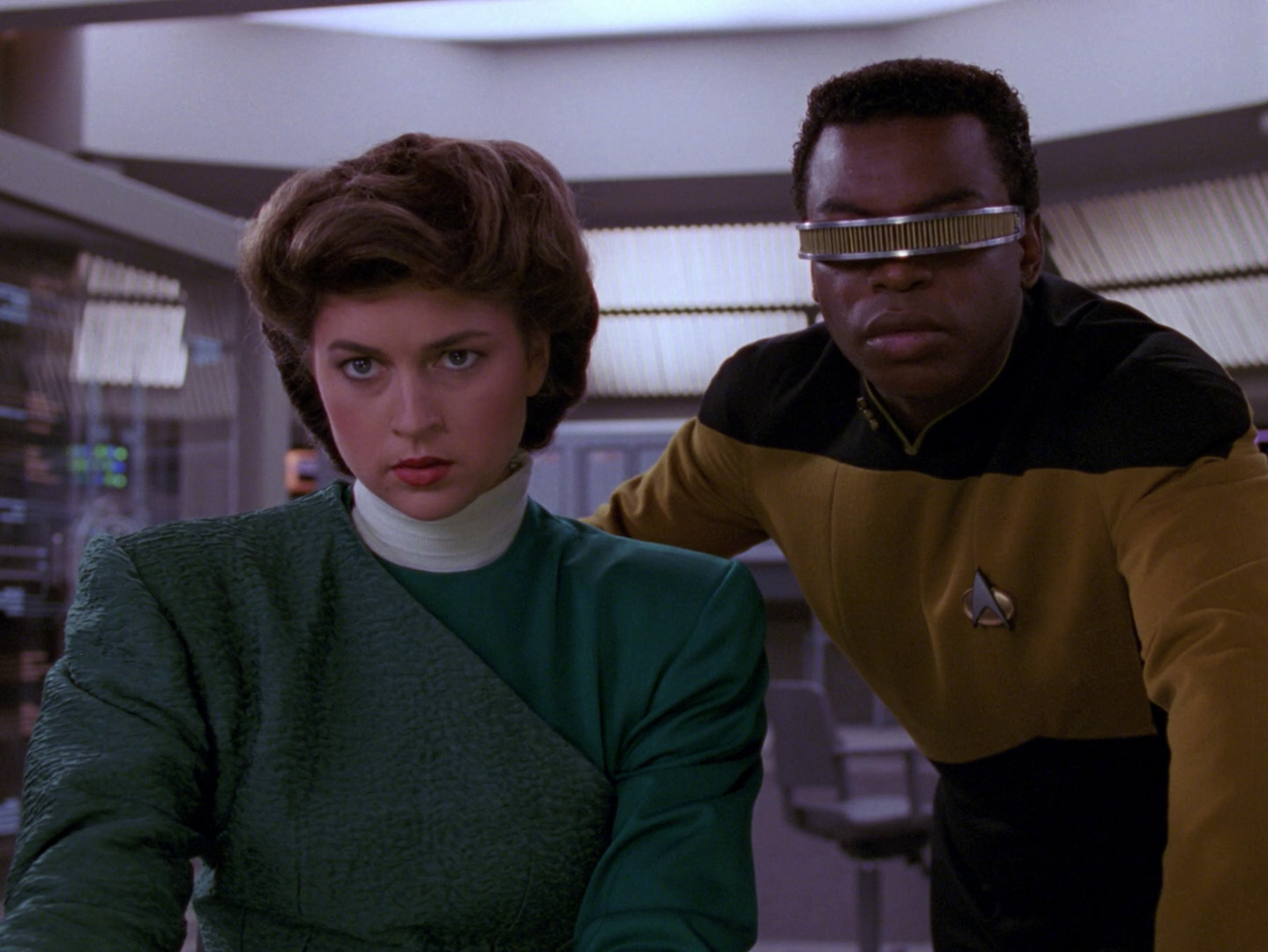
LaForge works to determine the cause of energy loss which will soon destroy the Enterprise. With time running out, he asks the ship's computer to simulate the chief engineer who designed the latest starship engines. Dr. Leah Brahms is thereby conjured, imbued not just with technical knowledge but with emotions and personality, portraying, within parameters of authenticity, her essence with 95% accuracy.
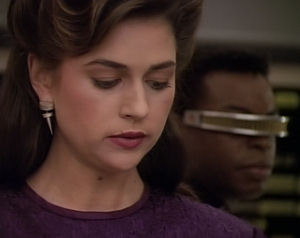
When I saw this, I said, “We could do the same in a holodeck-world.” Here’s what we know, or think we know, right now:
We can:
(1) invite persons of special significance from our Earth-life to be with us in a holodeck-world. We might also:
(2) create a simulation, like Leah Brahms, to interact with us. But I’m wondering if there might be another option:
(3) I believe it will be possible for a “real-live” person to access her own memory-banks and, in a sense, enter into a long-ago frame of mind, thereby allowing one to authentically, realistically, explore a “what if” scenario. In the accessing, she would have the same essential outlook, the same views, as she had decades ago, but this time, you will see what “would have happened” had you said or did something different.
Are you ready to finally learn what might have happened?
There are endless possibilities here. You've always wondered how things might have played out if you'd said such-and-such or acted in another way at particular junctures of life... Are you ready to know the truth of what "might have been"? It could be unnerving to know, but very educational.
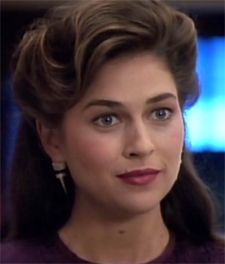
But, will all this constitute a “real world” or just an illusion? Let’s recall from our discussions of the implications of quantum physics (see the “theory-of-everything” and “ultimate reality” pages), that only Universal Consciousness is real, with physical objects as mere manifestations of Consciousness.
Matter enjoys but a derivitive form of existence, with only Consciousness as primary. This is why, at the quantum level, matter disappears into a nothingness. What we believe to be solid and “real” material substance is a kind of simulation. Only Consciousness is real and primary. Matter, at its center, is "made of" Consciousness. Materialists will preach otherwise, but without evidence -- ask Dr. Amit Goswami.
This principle holds true for all worlds, our present one and the ones to come. All worlds, it could be said, are worlds of simulation; all worlds, in a sense, are worlds of illusion. All worlds derive their substance from Universal Consciousness, the ground of all being. There is no such thing as the Earth-experience being "more real." This feeling is just an empty prejudice of materialistic Earthlings.
And, therefore, the coming holodeck-worlds, representing lost and bungled opportunities of the Earth-world, now recreated/re-enacted “to the finest detail,” will be just as real, or unreal, as the Earth-experience.
But let's talk about this a little more.
|
which one is the "real" world and the "real" life - it can get a little confusing
I hope you've begun to see how this holodeck-world principle might heal sorrowful hearts.
There is a natural tendency to lament: "Oh, I missed out on this experience with the one I love; and we didn't get to do this, and we lost out on that, and then this big problem happened instead - and now there's no way we can ever make this up!" Actually... this is not true.
|
I think you're scared, because you want to be with me, too...
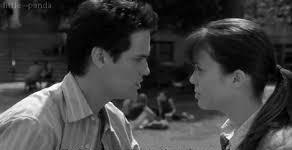
Landon Carter and Jamie Sullivan
"Maybe I want to be with you!"
"You don't know what you want!"
"You know what your problem is? - you're hiding from me and from yourself. You hide behind that holy book of yours and your religion. I think you're scared -- because you want to be with me, too."
|
What if you could make up the losses and do it right this time, be made whole, in a very real way that satisfies the deepest wishes of the heart?
I don't think the hurts of the past will ever be erased from our minds - and, with a clearer head, we wouldn't want this to happen, as our mistakes and losses become part of our wisdom, the very reason we dared to come to the troubled Earth.
|
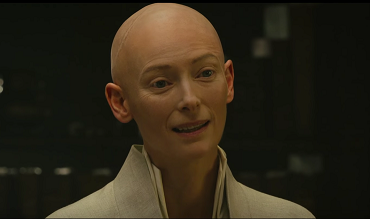
Doctor Strange (2016), The Ancient One (Tilda Swinton)
“We never lose our demons. We only learn to live above them.”
|
grief to be swallowed up, displaced, reduced to cool philosophical notation and footnote, by the dominant and overwhelming good experiences to come
Instead of "erasing," we need to displace and minimize, remove the sting of loss and grief, by overlaying the hurtful experience with a new positive one; however, not just any new experience, but "the very same one," so to speak, now sanctified and sanitized, free of trauma and loss. We can do this in a very real holodeck-world.
|
the story of Marie in the Dark Realms
Robert James Lees was a famous London psychic-medium of the latter 1800s. He was involved in solving the Jack The Ripper case and claimed to know the identity of the sought-for criminal. Lees write a trilogy, the first of which, “Through The Mists” (1898), offers excellent information concerning Summerland. I praise him because, unlike so many reporters who are part of a dysfunctional group over there (see “the 500 tape-recorded messages from the other side” writing), Lees gets it right on many points of natural law. I offer the foregoing as credential of credibility regarding an excerpt from his book.
He informs us of a man named Cushna, on the other side since the days of early Egypt – this could mean 10,000 years of residence in Summerland. Cushna, as revealed in Lees' book, exhibits qualities of the perfect gentleman, the perfect servant, the perfect friend. We take note that he has remained in Summerland to provide a service to dark-realm les miserables.
Cushna speaks to a fairly recent arrival in Summerland. They have just heard the testimony of Marie who had been greatly suffering in the Dark Realms for a long time. Cushna is about to explain how the memory of her suffering is not to be erased but re-interpreted so as to form a basis of future wisdom:
“Cushnal tell me,” I cried, “how can you reconcile your one law of love with the terrible scene I have just witnessed?” [Marie having collapsed in exhaustion after recounting her story of suffering.]
“I can well understand your difficulty,” he replied, “and will try to explain… It is impossible for me to relate, or make you understand how, or by what means, she has been gradually weaned from the terrible agony in which I first found her, a remnant of which you have just witnessed… there is nothing inconsistent with the law of love in asking her to tell her story. The retention of individuality demands that the memory of the past shall never be effaced - the scar of every wrong we have done will forever remain, till, when we have paid its penalty, it ceases to be a source of pain - the wound slowly heals, the discomfort dies away, but the scar endures.
“Marie has now reached this healing stage, and every time she tells her story it is like another dressing of her wound - painful for the present, but beneficial in the result. Every recital is less agonising than the last, and the exhaustion it causes induces a sleep from which she derives additional strength, which is very necessary to her progress.
“And how long will it be before all this can be accomplished?”
“That varies very considerably - generally about the same length of time as the previous imprisonment.”
“Have you any idea how long that was?”
“Yes! As I have told you it lasted about twenty years [in the Dark Realms].”
|
Our time on the Earth is more or less a disaster for everyone, and people naturally worry how they will ever find peace of mind from the losses here. I have come to see that the Spirit Guides do not share this worry with us, as they know of the coming holodeck-worlds where we'll be able to "overwrite the sad scene" with a better ending, one to our individual and particular liking.
but... which one is the "real" experience
Let's remember that these holodeck-worlds can recreate an Earth-scene down to the "finest detail." When I saw that phrase, a whimsical thought came to mind: "This means that on the lake by the old farm there will be the same July mosquitoes hovering on the water at dusk, and the same frogs I used to chase by the shore when I was ten!"
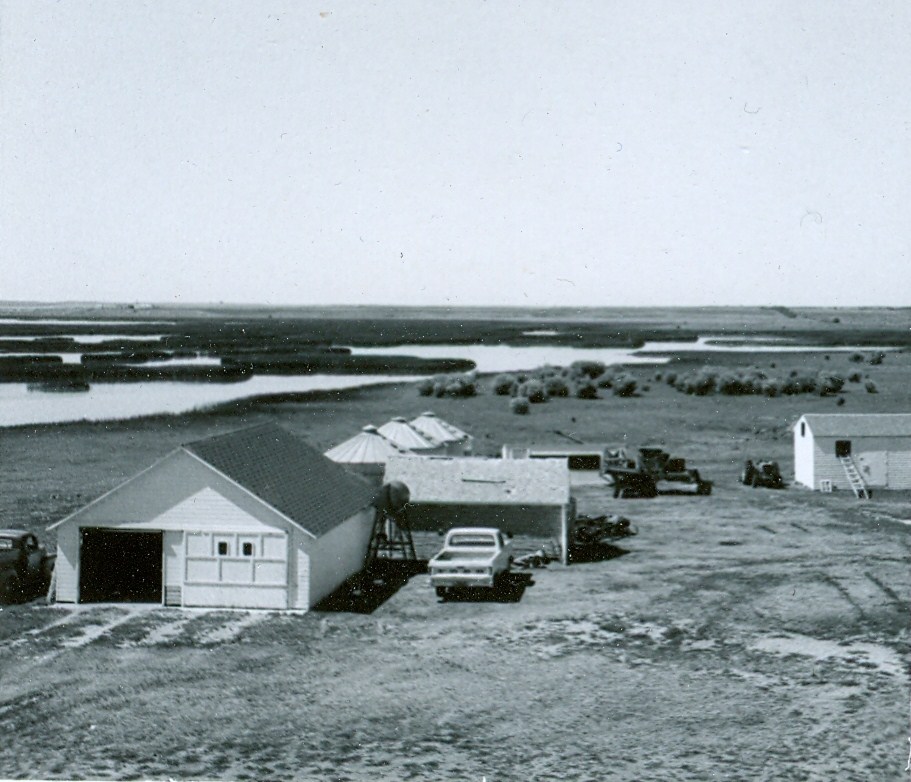
When there's that kind of detail recreated, it suddenly becomes a little confusing about which is the "real world." I suggest we review Father Benson's remarks in the "archetype" article as he strongly asserts that the Earth-world is the pale, black-and-white "copy," with the coming "real world" the permanent full-color production.
nothing here is real... nothing here matters...
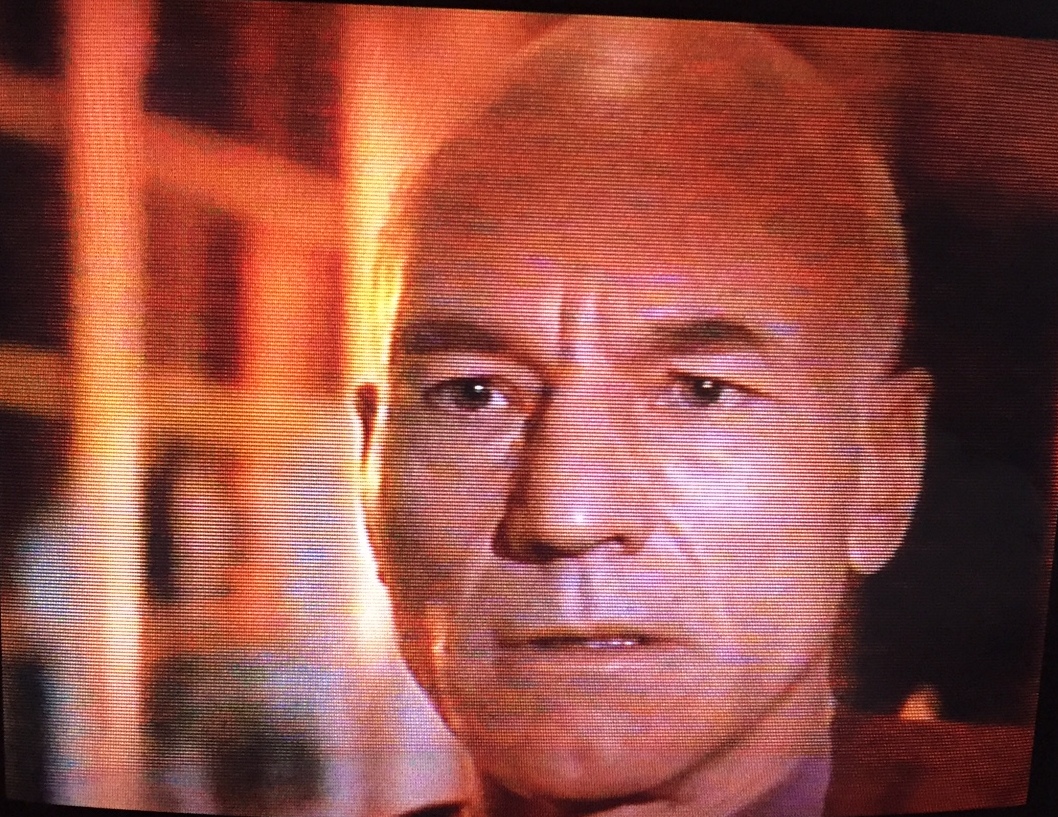
I've learned much from Picard's wisdom, but, in this case, I think he had it wrong. It's the Earth-world, not the holodeck-worlds, where "nothing matters."
Everything here, as Kairissi and Elenchus came to see, is provisional and reversible; everything here, essentially, expresses the cravings of the Small Ego; everything here was built by deluded creatures of whom Jesus said, "they know not what they do"; everything here is in a state of flux, decay, and is passing away; every good thing here is like the elusive butterfly defying capture and gone the next moment; everything here is meant to be training-ground, "practice turn," a disposable throw-away version.
|
in years gone by, the good times I had, makes today seem rather sad, so much has changed...

Karen Carpenter
Yesterday Once More (every sha-la-la-la), 1973
|
when I was young I'd listen to the radio, waitin' for my favorite songs, when they played I'd sing along, it made me smile, those were such happy times and not so long ago, how I wondered where they'd gone... lookin' back on how it was in years gone by, and the good times that I had, makes today seem rather sad, so much has changed...
|
In an interview, “not so long ago,” as Karen's song suggests, Michelle Phillips of The Mamas And The Papas commented, to the effect, “In those days [the latter 1960s] we were all trying to sing like Judy Collins – and good luck to us with that.” Yes, Judy Collins, but also Judith Durham and Karen Carpenter. It is difficult to think of voices more siren-like and engaging; voices, 1 in 100 million. And in Yesterday Once More, another top-game for Karen but making it sound easy, she reminds us of the ephemerality of good things in this world; as I once put it, oh, oh, how few and meager were our halcyon days, how quickly they disowned and fled from us...
|
But, in the coming "real world" good things do not flee from us. Every authentically good thing reflects our "true self," the needs and wishes of the soul, that which we "ought" to desire and were made to desire.
And concerning relationships, one's true love-relationship in Summerland is built upon permanent soul-affinity, not the transitory bio-responses of "John and Mary," which latter union will naturally fade away.
Every good thing in the Spirit World is enduring and fixed, settled and abiding, never again to suffer loss - we will not, as Karen Carpenter sang, know sadness because "so much has changed", with the good things, suffering collateral damage, now moribund -- and so, in Summerland, when we find something we really like, we can stay with it as long as we want - unendingly, if so desired; or until we're ready to say, "been there, done that, what's next?"
No one will ever ask us to vacate or leave or give up something good; no one, nothing, will ever disrupt our happiness.
Why, then, should we favor the shadowy Earth-experience as "real" and not that of the coming worlds wherein our truest selves, our deepest yearnings and soul-pledges - that which "should" and "ought" to have been - find solid, actual, and permanent expression?
|
another aspect to the question, which is the real world
In the channeled writings of Franchezzo, a missionary working in the Dark Realms, we learn much about that prison-realm. It is a forbidding region, closest to the Earth, and much, much larger than our own planet.
It is crammed with warring “neighborhoods,” billions of frothing and foaming true believers, goaded by despotic Dear Leaders, massing armies of conquest against rival groups.
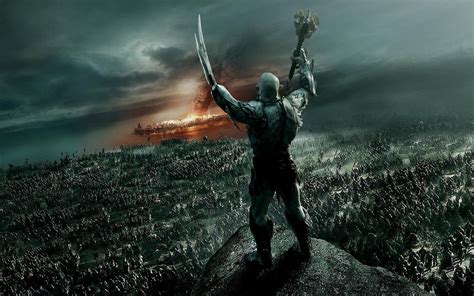
It sounds like our own world, group against hated group, each vying for hegemony, for totalitarian domination.
It virtually is our world, for, as we learn from Franchezzo, the power-mongers there, via force of mind, gull, bamboozle, and inspire the demented political-religious ringleaders of planet Earth.
I bring all this up just now because, as it occurs to me, it relates to the question, which is the real world?
In our world, there is so much corruption now, we wait for the new "outrage of the day," the fresh reports of personal liberties denied, by some smirking and soulless face on tv, with truth trampled in the streets.
And for those who suffer under the prejudice that the Earth is "the real world," we find ourselves somewhat duty bound to be informed of the latest atrocities. But, I have to stop myself now, and ask, is this a valid sense of obligation?
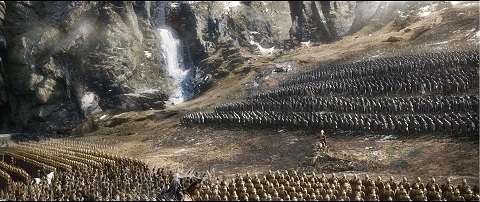
The hapless figures in the Dark Realms are just as human -- or lacking thereof -- as any ego-led minion of our world. They have the same human potential, the same insanity to overcome, the same detachment from reality, as any political or religious devotee of our dark planet. And some of these, the grossly deluded in dark places, are our blood relatives.
Even so, I do not feel duty bound to seek for psychic reports of millions of conflicts going on, right now, in the shadow-worlds. Why then should I unduly trouble myself, encumber my life, with news-junkie status concerning our off-kilter world? To keep half an eye on headlines is more than enough.
Planet Earth is no more the "real world" than is the Dark Realms. Both are passing away. From thousands of reports from Summerland we learn that its citizens, now happily living their lives, allow memories of the sordid Earth, and the Dark Realms, to fade away. Some there in the home-world are so eager to put away the sorrowful past that they take on new names and might have trouble even recalling their birth-name. And some, or many, choose never to go back even to visit the Earth; they've had more than enough. They cut all ties and want to know nothing more about it, as they move on to explore other worlds and wonders of the universe.
The mentally-balanced Summerland person is not, as they use the term, "Earth-bound." As soon as we can, we do our long-term growth a big favor by ridding ourselves of almost every Earth concept. There's a certain smell to almost all of it. With this in mind, we begin to perceive, to a degree, that we are to loosen the grip of attachment to this world, even while living here.
Nothing that happens, in either place, Earth or Dark Realms, is worthy of our long-term special consideration; and even short-term focusing, for much of it, can be harmful or suspect.
We'll want to retain little from this disastrous trip - but for lessons learned, forged in blood, sorrow, and regret.
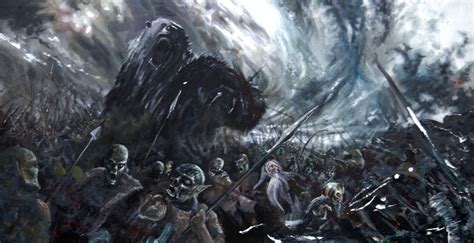
Editor's note: How to know which Earth concepts are harmful to us? Our internal guidance system is meant to protect us from the poisonous influences here. See more discussion on the "universal consciousness" page.

Kairissi. I have to say, I will not be one of those in Summerland following every news item. The more I learn about the “heart of darkness,” the more dismayed I become.
Elenchus. There’ll be no requirement for us to keep up with the headlines “back home.”
K. There was something in the news, nothing we haven’t heard before, but some government official talking to himself power that should not be his. This destabilizes a free society. Why is he doing this? – because he’s run by the ego and thinks he can get away with it, no one stopping him. It is so tiresome to see this day after day. Each little mind, each little shriveled heart, grasping for more and more. People trying to be clever, thinking no one will notice that they're abusing others and the system, while posturing as saviors of democracy. I am so burned out with all this gamesmanship which hurts the entire country. I just want to be done with it, Elenchus.
E. I understand, and you can be.
|
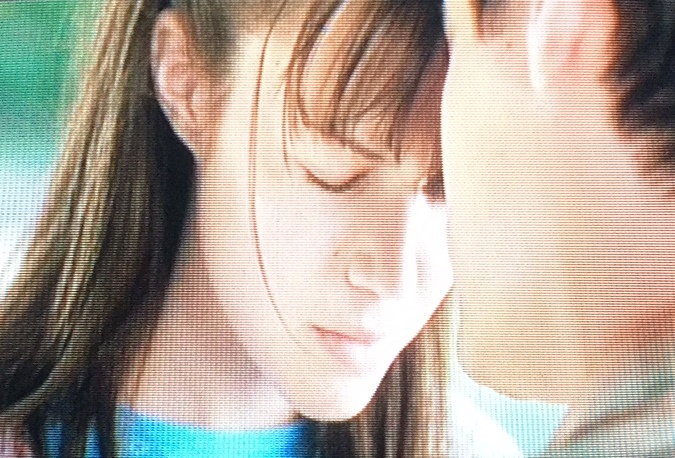 |
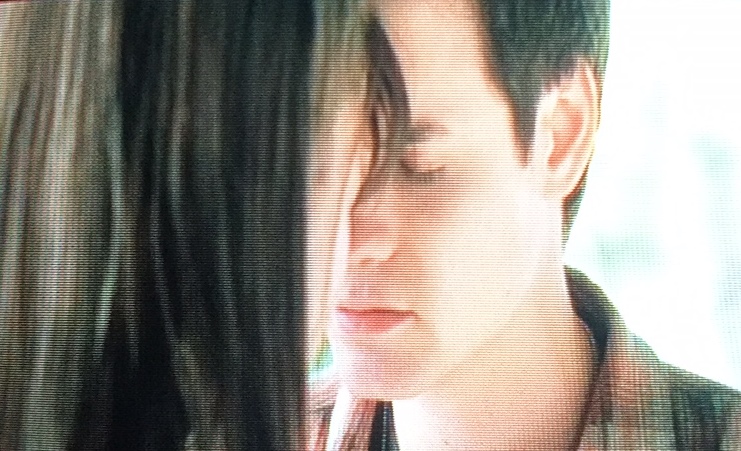 |
|
How can it not be real when the same mosquitoes are on the lake?

Kairissi: This whole discussion of the “real world” really gets to me.
Elenchus: What bothers you about it?
K. The author's comment about the vicissitudes of his old boyhood farm - even the lake’s changing shoreline, in his own lifetime - I find rather unnerving.

E. His frog-chasing may have encouraged the expression, "mad as a box of frogs."
K. I'm sure he was right in there.
E. Tell me what you're really seeing here, Kriss.
K. It’s just the impermanence of it all. The author has stated that the old way of life, the German farming community of childhood, appeared as enduring as the ancient Roman Empire, which lasted a thousand years, and another thousand in the East. But those views of solidity were just illusion; yes, while kids live “at home” under the control of powerful father figures, it can all seem set in stone, but how quickly the stage-props disintegrate. In the end, the "solid" farm and "permanent" way of life were all made of straw and playing cards. The big bad wolf just huffed-and-puffed it all down so easily. And that whole way of life, the whole bustling, thriving farming community, is now gone, just a shadow remaining; though it seemed like it would expand and prosper forever.
E. And the “powerful father figures,” too, ended up dying, in fact, rather early; and the many big farms, with the stalwart and fortitudinous farm families, blew away like super-dry combine chaff.
K. This is very disturbing to us. But I have come to see that institutions and modes of living on the Earth are all just fake scenery; just kids playing with wooden swords and paper hats. And in all this insubstantiality, I wonder why part of me so readily ascribes any assessment of “real world” to the Earth, this fragile gossamer moth of fading summer.
E. Would you agree? – it’s just an empty prejudice we indulge. As Amit Goswami says, we errantly identify with our social conditioning, "with a particular pattern of habits for responding to stimuli;" this is what the small ego does as it creates illusion on many levels. We humor ourselves that time flows with constant rate, that tables are solid, that the sun rises in the east - but none of this is true.
K. We are deceived – as the author asserted repeatedly in “Stars And Midnight Blue.” “Might we always be deceived?” he asked the reader. And I think another point of common deception is that we count this world as “real”.
E. Kriss, this is a very important insight, and it helps clarify the whole issue. Our default judgment that the Earth-plane is the “real world” should be ranked with the rooster’s fancied belief that his crowing brings on the dawn.
K. I think so, and the point is, the Earth is not the “real world,” no matter what our five senses cajole us to accept. That view is simply misjudgment, along with a hundred others that form our deluded notions of how life works.
E. So, let me ask you, where does this leave us in our review of this subject?
K. I think… in a coming "holodeck-world," in a “sphere of love,” we will begin to let go of our social conditioning and gradually allow our perceptions to become convinced of many truths. With better knowledge, keener vision, with less ego directing us, all of the examples of “I am deceived” will begin to surrender to a more enlightened view. And part of this realignment will include what we count as “the real world.” The hegemony of the Earth-plane, and our disastrous time here, will fade in our thinking and be replaced by the far more substantial reality of Summerland and “the spheres.”
E. It all comes down to ordinary mistake. We crown the Earth as "the real world" because it's all we know right now.
K. "Garbage in, garbage out," Darling Dear.
|
|
Hamlet’s play within a play
In Shakespeare’s Hamlet we find the protagonist creating a theatrical production. It’s used as a device to incite a guilty conscience in the audience to reveal itself.
Picard’s sudden removal from the Enterprise, and his ensuing 40 years of family life on an alien world, is a kind of “play within a play.” It was an interruption of his real world to disjointedly live another life elsewhere.
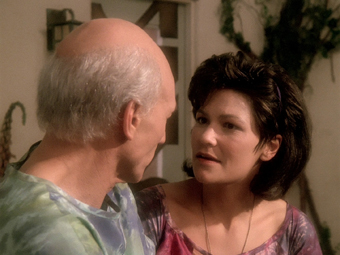
But it might occur to us that our temporary sojourn here on planet Earth could also be viewed as a “play within a play.” We, too, are thrust into a foreign environment, far away from our home world.

Kairissi. This is a very interesting idea, this “play within a play.”
Elenchus. It provides perspective on what’s happening to us here on Earth.
K. And it helps us to understand “which is the real world?”
E. Forty years is a long time. Picard had a wife, kids, then grandchildren. And with all that, it could seem very real, making the Enterprise somewhat of a fairy tale in his mind. Was he really once a ship’s captain? That could have seemed unlikely after the passing of decades.
K. And so it is with us, here, in our own “play within a play.” We’re now made of flesh and blood, and, if we fall down, we bruise. This body, while fragile, seems exclusively real, and it's very easy to doubt that we could be more.
E. And then we’re told that our real world, our home world, is Summerland.
K. Not many believe it.
E. And all the people in Picard’s village thought him touched with madness with his stories of once having commanded a star ship.
K. Those who speak of the "scientific evidence for the afterlife" are served the same ignominy. But we’re just one missed heartbeat from “going to Enterprise,” one missed heartbeat from returning to our natural environment, our natural home.
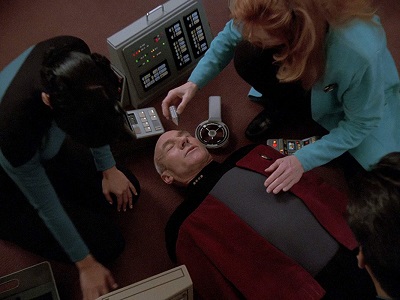
|
- Editor's note: In addition to the six major testimonies above, there are also good secondary sources as evidence for the "holodeck-world." For example in my Summerland article I speak of Raymond Lodge, son of the famous scientist, Sir Oliver Lodge. Raymond had been killed in WWI and subsequently communicated with his father via several psychic-mediums. The fallen soldier explained that in Summerland...
"It seems to get dark sometimes, when you would like it to be dark."
The above six major examples of "holodeck" materialization take place in worlds beyond Summerland, but, as we learn from Raymond, the principle of "thoughts are things" is found in a beginning way even in Summerland, where Raymond's mere intentions create "night-time" even though perpetual day-time is "default setting." In places beyond Summerland, however, the power of the mind to create environment gathers much strength with entire worlds, furnished "to the finest detail," brought into being to satisfy private desires.
|
addendum: the Dark Realms, too, are created by thought
While reviewing a taped testimony of Spirit-Guide Abu, I heard something which abruptly stopped me. Abu stated that the Dark Realms were not created by "upper management" to detain or punish malcontents. As we learn time and again, no one will ever pass judgment on us in the afterlife - we do this ourselves. Abu asserted that we, ourselves, create the Dark Realms. We ourselves do this by the power of thought, now cruising at hyper-speed in dimensions wherein "thoughts are things," virtually taking on a life of their own.
Consider the shocking implications and the parallels: For those who have begun to advance themselves, wondrous worlds such as "the spheres of love" open to them and are created by their own particularized desires.
But, if we labor in a self-imposed darkness due to malicious and evil conduct, one's personal mental darkness, upon crossing over, might spring into hard-edged existence, manifesting as fully-formed unpleasant worlds -- dwellings of our own making.
It becomes evident, as one closely studies this subject, that we all create habitations for ourselves in the coming dimensions -- with the question confronting us, will the thought-prompted worlds be of pleasure or pain?
|
|
a most unusual 'holodeck' example
I invite you to review my article on the 500 Leslie Flint "direct voice" tape-recordings. It’s a treasure-house of information about Summerland from people on the other side.
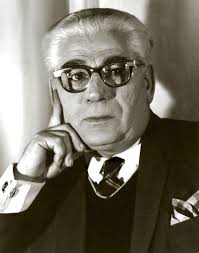
Leslie Flint, circa. 1960
-
"I think I can safely say that I am the most tested medium this country has ever produced... I have been boxed up, tied up, sealed up, gagged, bound and held, and still the voices have come to speak their message of life eternal."
On May 29, 1970 Charles Dickens, from the world of Spirit, offered recorded testimony via medium Leslie Flint. Dickens spoke for nearly 30 minutes, on a variety of topics; for example, he expressed the view that so-called death, in fact, is really the beginning of life and opens a door to great knowledge and experience. However, for our purposes here, I would like to focus on a particular aspect of Mr. Dickens’ report:
In the future dimensions, where the principle of thoughts-are-things takes to itself great power, as we’ve discussed above, worlds are brought into being, and outfitted, according to one's intentions.
An author, said Dickens, might provide a most unusual aspect to this phenomenon; in that, characters created in literature, if readers identify with them, if there is sufficient interest, will be brought into a kind of existence in a particular world designed for this purpose.
Dickens commented, "I've met a lot of my own characters here.” This does not mean that these characters are now ensouled entities but, instead, will exist along the lines of the “baby Jesus” we learned about earlier. Even so, the fictional entity will be imbued with extremely life-like qualities, like the simulated Leah Brahms interacting with Giordi.
I see Dickens' report of this marvel as having great educational and recreational value. Think of the loved characters created by many authors, ones that you've enjoyed in your life. It will be possible to meet and interact with these "personages" in a very real and convincing way.
Concerning Dickens' most loved literary entities, I'm thinking of David and Agnes:
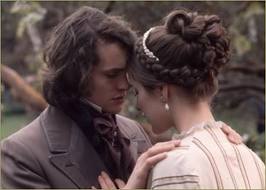
"And now, I tried to tell her of the struggle I had had, and the conclusion I had come to. I tried to lay my mind before her, truly, and entirely. I tried to show her how I had hoped I had come into the better knowledge of myself and of her; how I had resigned myself to what that better knowledge brought; and how I had come there, even that day, in my fidelity to this. If she did so love me (I said) that she could take me for her husband, she could do so, on no deserving of mine, except upon the truth of my love for her, and the trouble in which it had ripened to be what it was; and hence it was that I revealed it. And, oh, Agnes, even out of thy true eyes, in that same time, the spirit of my child-wife looked upon me, saying it was well; and winning me, through thee, to tenderest recollections of the Blossom that had withered in its bloom!
'I am so blest, Trotwood -- my heart is so overcharged -- but there is one thing I must say.'
'Dearest, what?'
"She laid her gentle hands upon my shoulders, and looked calmly in my face.
'Do you know, yet, what it is?'
'I am afraid to speculate on what it is. Tell me, my dear.'
'I have loved you all my life!' ...
If you so desire, if it is meaningful for you to do so, you will be able to meet this couple. You will even be able to meet Kairissi and Elenchus.
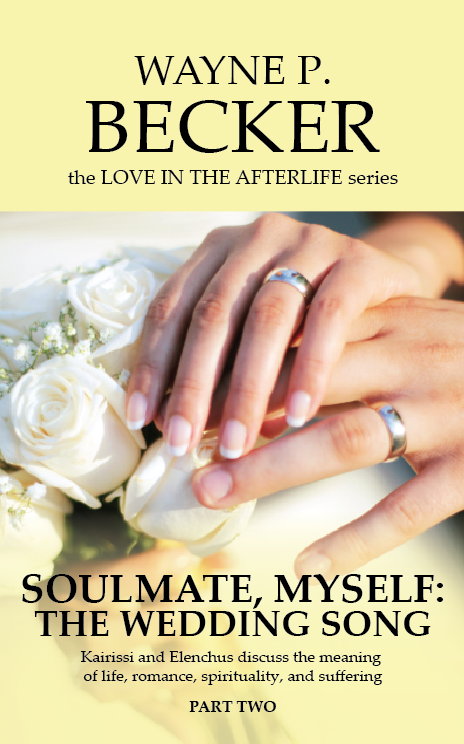
special note:
As a boy I greatly admired -- and part of me extols to this day -- Superboy and the Legion of Superheroes. How thrilling were their exploits and noble spirits of altruism:
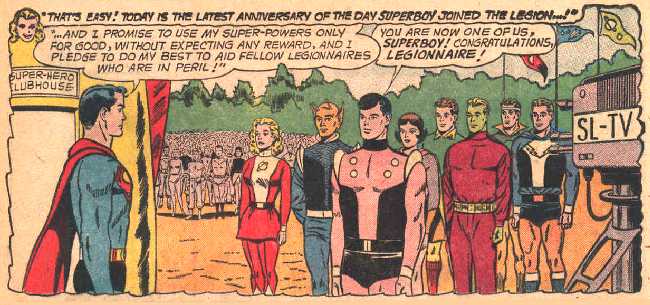
Truth, as they say, is stranger than fiction; future worlds will blur demarcating lines between, not just fiction but, what we assumed to be mere fantasy.
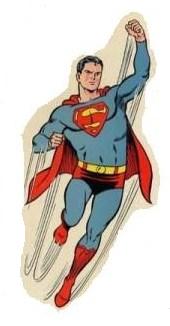
|
|
primal desire: living with a beloved in a garden paradise
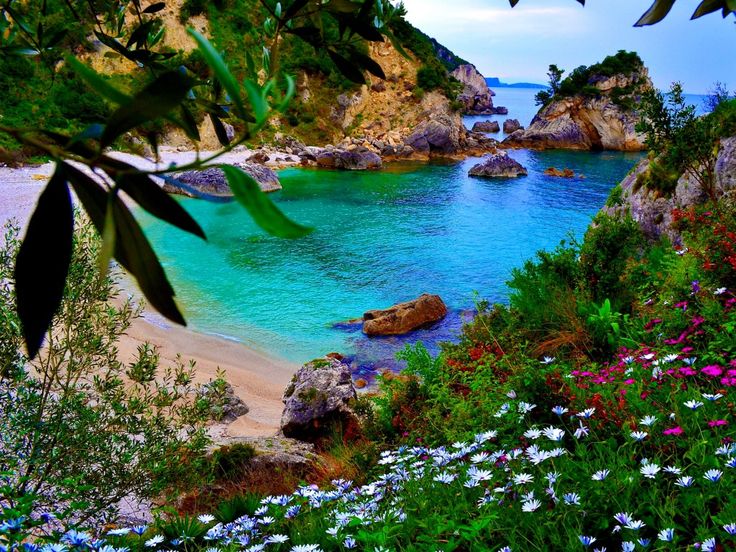
Lovers living in a private paradise-world is an ancient symbol, virtually a universal Jungian archetype, of ultimate intimacy. It’s interesting that the original Twin Souls, the fictional Eve and Adam, began in a garden paradise, and that we, their children, will experience Twin love in another perfect environment, a paradise holodeck-world, not to mention Summerland proper.
There is something in us that craves to live with a Beloved in a private garden-setting, free of the mundane, boorish, and injurious, the “cares of this world.” God and the Guides are not unmindful of this primal wish, which gives rise to the holodeck-worlds. For those who count this as fairy-tale, I will simply say that a jaded, nihilistic-materialistic view is the real fairy-tale.
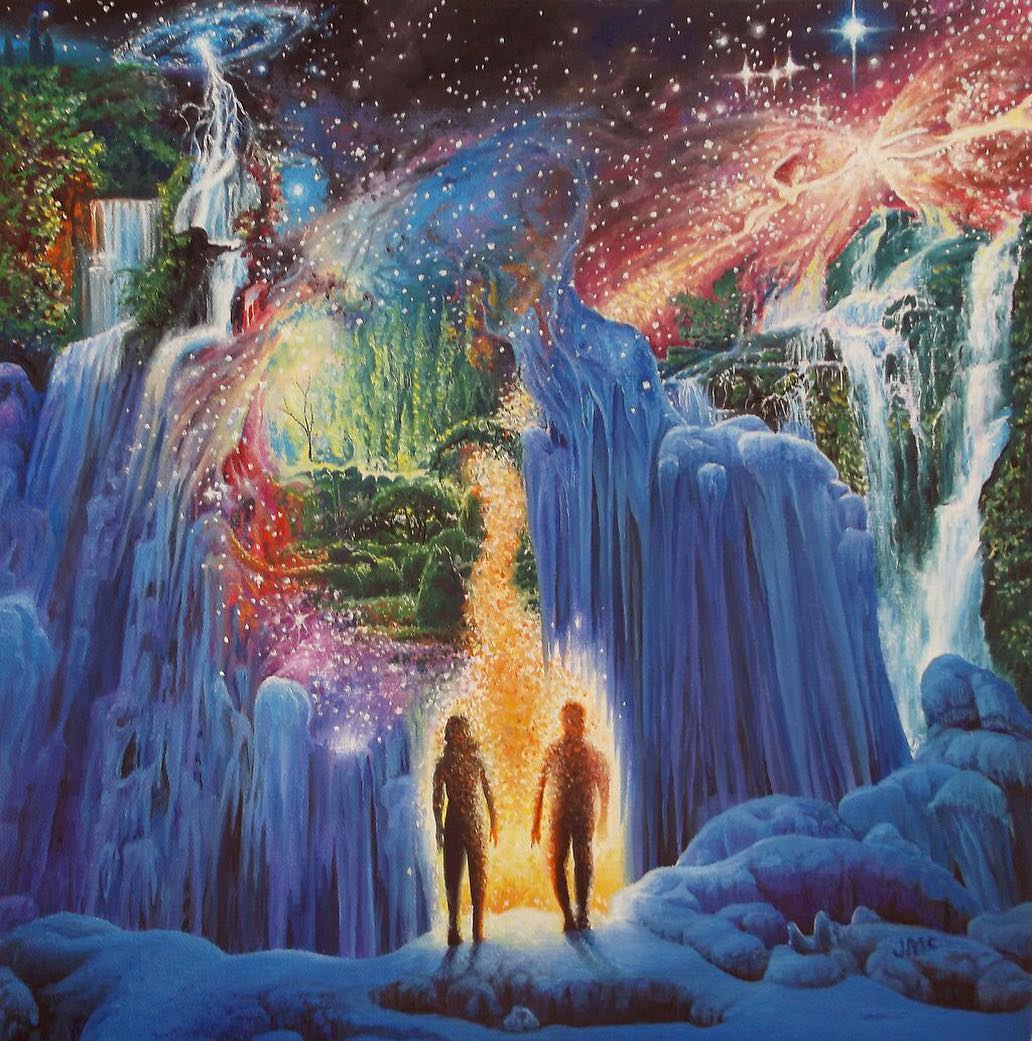
oh my love, oh my love, I cried for you so much
A World Of Our Own
The Seekers (1965)
we’ll build a world of our own, that no one else can share, all our sorrows we’ll leave far behind us there, and I know you will find, there’ll be peace of mind, when we live in a world of our own;
lonely nights, without sleeping, as I longed for your touch
oh, my love, oh, my love, I cried for you so much, lonely nights without sleeping as I longed for your touch, now your lips can erase the heartache I’ve known, come with me to a world of our own...
Editor’s note: These lyrics from the old Seekers’ song are very moving: oh my love, oh my love, I cried for you so much, lonely nights without sleeping as I longed for your touch. Solace for us becomes, even the worst nightmare eventually ends, and God has designed the future to offer healing from this sorrowful planet.
|

Knowing movie (2009)
-
|
-
nothing is too wonderful to be true if consistent with the laws of nature
Michael Faraday, the great English chemist and physicist

|

Elenchus. This is all such a heavy subject. And we’ve said so much; but... is there anything you’d like to add?
Kairissi. (sighing) I don’t know, Ellus… it just all weighs me down… This fleeting world and all we do here – it’s such an overwhelming illusion... and so unsatisfying.
E. (silence)
K. We go to school, we grow up, we graduate from high school, we leave home. We haven’t a clue which end is up, how life works, or what to do. Even so, we start to make decisions. Next thing you know, we’ve made choices on who to marry, where to work, and a place to live. And then we have children, and then they grow up, and sometimes there’s a little happiness along the way, but there’s a lot of sorrow coming at you from many directions, as you try to keep it all together. You’re getting older now, health problems develop, there’ve been financial reversals and conflicts with many people over the years who tried to cause you trouble. And… all these problems seem so solid and real, granite-like and oppressive... so inescapable; like, it couldn’t be any other way… and then you cross over to the next world, and now, suddenly, in a heartbeat, you learn that all of that “Roman Empire” solidity is just gone in a hot moment… all the things you worried about and were so important are just out the window.
E. So much for the Earth as the “real” world.
K. Well, that’s the point, isn’t it.
E. I was looking at Father Benson’s “Life In The World Unseen” again, and it pressed hard on my spirit that… when we cross over, it’s a whole new ballgame – and not just that it’s new, but that we’re going to be there for endless and unending times to come… endless and forever! And in that realization of no boundaries, no finishlines, the petty and temporary “cares of this world” suddenly seem very small.
K. Yes… “small”… it’s the sacred sense of proportion, isn’t it. It's what we so easily lose. While we’re here, our thinking is out of line as the Earth problems seem so big and dominate us… but it’s all illusion… just a big misjudgment of proportion.
E. Kriss… is there a final word you would have for our readers?
K. I don’t think this subject can be tied up in a pretty bow and done with. (sighing) But… the sooner we begin to live our lives authentically, the better off we’ll be… and what I mean by “authentically” is, putting away, as much as we can, the shadows and vapors of what we think is important in this unreal world; all the cultish associations and then beginning to live according to the things that will endure, eternally, far into the next world.
E. If I may, I’d like to comment a little more on the “Roman Empire” sense of solidity. There’s so much illusion right now passing for things that matter - but it’s just a gossamer-fragile dandelion head about to be blown apart by the wind.

E. What I’m getting at is, recently I was watching a lecture on youtube. A lady was telling her story about her departed spirit-relatives who appeared in her bedroom late one night, and they stayed for an hour and talked; and then they came back for a few more nights!
K. This was a spectacular afterlife experience!
E. It was very interesting, and I’m glad she offered her testimony, but there was something that bothered me. Now and again she’d make reference to her Big-Religion ritualism, her devotions, her prayers, and by this she seemed to imply that these served to manage the experience. However, she did not understand that she'd come into these experiences in spite of, not because of, her link to Big Religion.
K. An association with religion is something you have to grow out of on the other side. But, right now, for a great many, it’s very comforting to live under the mantle of a “strong mother or father figure.”
E. All this is part of the “Roman Empire” sense of solidity - but it’s just one missed heartbeat away from the real world and, as Mick Jagger sang, a "whole new set of rules."

|
Kairissi and Elenchus offer some concluding remarks on the ‘holodeck worlds’
Elenchus. There was a time when the prospect of having adventures in a ‘holodeck world' was something I looked forward to with great anticipation. This may sound strange, Kriss, but it’s become less important to me.
Kairissi. I’m glad you brought this up because I’ve had similar thoughts recently...
READ MORE
|
|
|
|
|












































